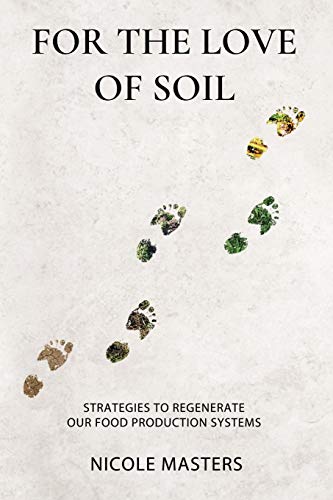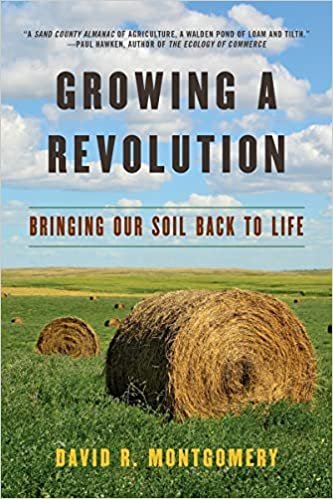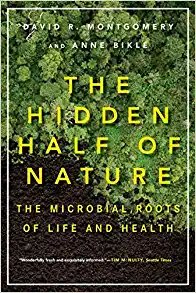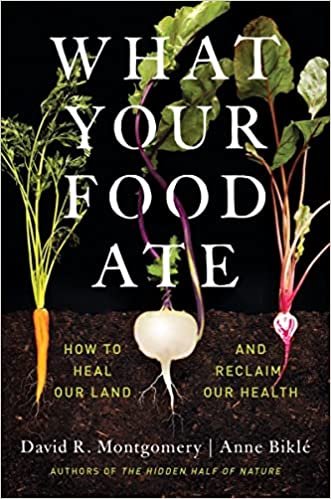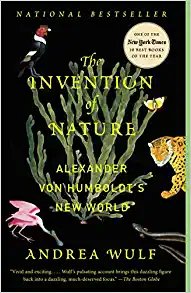Start with For the Love of Soil by Nicole Masters. It was certainly both the most inspirational and educational book I read last year. The main chapters of the book include story after story of farms that underwent almost miraculous transformations by the application of biological and sometimes chemical/mineral treatments as well as management practices. Then she goes on to add sections on transitions, using a refractometer, infiltration, monitoring indicators, growing mycorhrizae and transition weed strategies. So it is also a handbook on managing your farm. Every farmer should have a copy handy.
Next on my list are 4 books by David R. Montgomery. Eileen of Ramstead Ranch recently suggested reading his book, Dirt (2007). I realized that I had not finished my digital copy and went back to it. Although it is mostly a litany of the ways humans have ruined soil through the centuries, there are enlightening bits about sharing grazing on a “commons” being sustainable when managed collectively and how since tobacco was 6 times more valuable than any other crop, it was farmed on new ground on the East Coast and abandoned when the fertility ran out and slave-owning farmers moved west, eventually leading to the Missouri Compromise and the Civil War.
His next book, The Hidden Half of Nature (2015), explores the benefits of regenerative agriculture that he was only beginning to realize in 2007 spurred on by biological understanding of his wife’s cancer.
Third in the series is Growing a Revolution (2017). Montgomery travels extensively, learns lessons and relates stories of the emergence of leaders in regenerative agriculture. These are also inspiring stories and great background in how this movement developed.
Another book by Montgomery is out there on my reading list, What Your Food Ate (2022). This is a reminder that we are all learning about soil and microbiology in a cascade of new information (hence all the publication dates). I keep realizing that Montgomery can explore all these things because he is not a farmer and tied to the everyday focus needed to improve one piece of land or an adjoining region.
In somewhat of an aside, I recommend The Invention of Nature, Adrea Wulf (2015). It is the extremely inspirational biography of Alexander von Humboldt. As such it covers the beginning excitement around the scientific revolution. Geology, Biology, Democracy, climate and culture all explode out of the explorations of Humboldt and subsequent correspondence.
All of these works on the nature of nature demand better understanding of the nature of mankind. In an escalating series of historically-based realizations about who we are, Yuval Noah Harari’s books Sapiens (2011), Homo Deus (2015) and 21 Lessons (2018) constantly give me new ways of looking at the world to which I am responding, “Of course, that’s what I was trying to clarify.” Having been trained in classical philosophy, it is a huge relief to read someone whose every word makes sense.
Finally new on my reading list although written in 2014, Think Like a Commoner by David Bollier may hold insights into why we are failing to rise to the occasions of climate change, soil depletion and pandemic disease and what we can do about it. As usual, everything you learn suggests new things you need to know.


